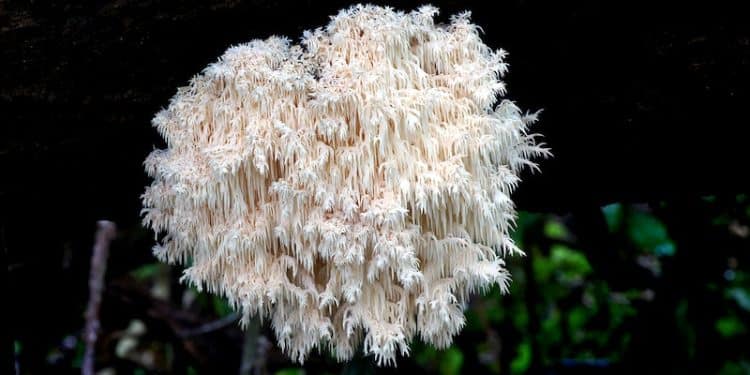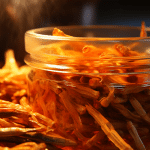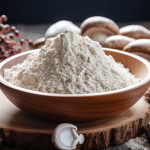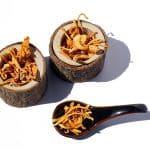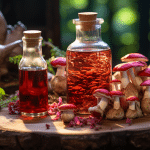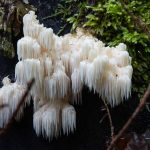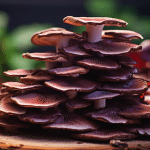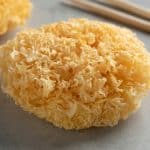The lion’s mane mushroom is highly valued in conventional medicine because it can lower your risk for a variety of diseases, as well as help with your overall mental and physical well-being. We took a closer look at the science behind lions manes mental benefits, and the results might surprise you.
What is Lion’s Mane Mushroom?
Lion’s mane (Hericium erinaceus) is a species of adaptogenic mushroom used for centuries in traditional Chinese medicine for everything from digestive issues to some forms of cancer, and to enhance general physical and mental wellbeing. Lion’s mane is said to be especially nutritious for your liver, spleen, lungs, kidneys, and heart. It is also difficult to deny the scientifically proven neurological and psychological benefits that the mushroom may offer.
The Spiritual Benefits of Lion’s Mane
Does lion’s mane mushroom have spiritual benefits? Shaolin Buddhist monks of ancient China used the mushroom during their daily meditation practices for improved focus. They believed that it increased their “Qi,” the mystic, energy-filled vitality.
The bioactive compounds in lion’s mane did, in fact, appear, improving attention spans and memories. Lion’s mane has been shown to ease symptoms of depression, as well as help reduce anxiety. It can also enhance mental clarity and general mental health, and can enhance attention span of those suffering from attention deficit hyperactivity disorder.
Improved clarity, lower anxiety, lower depression, and increased focus? Those seem pretty decent spiritual benefits to us. Research into the health benefits of lion’s mane mushrooms indicates that the mushroom has the potential to boost production of neural growth factors and repairs brain cells. It appears to alleviate symptoms of dementia, reduce oxidative stress, as well as enhance general mental clarity and cognitive health.
Below is a video we liked that also dives into the spiritual benefits of lion’s mane mushroom:
You can find our favorite capsules, powders, and tincture’s on the following pages of our website and learn more about each individually:
Our Favorite Lion’s Mane Supplements
Our Favorite Lion’s Mane Powders
Our Favorite Lion’s Mane Tinctures
Our Favorite Lion’s Mane Gummies
Lion’s Mane Bioactive Compounds
- polysaccharides
- polypeptides
- beta-glucoxlan
- prebiotic fibers
- basidiomycetes
- digestive enzymes
- hericenones erinacines
Ways to Take Lion’s Mane
There are a number of ways you can benefit from the lion’s mane. You can prepare the mushrooms in different recipes, or you can just eat them raw. However, most people choose to use lion’s mane supplements, powders, and tinctures. Alternatively, you can eat or enriched food and beverage products, like coffees, tea’s and granola products that contain lion’s mane.
Neurotrophic Properties of Lion’s Mane
Lion’s mane neurotrophic effects are among the most extensively studied topics regarding this species of mushrooms. Although mostly conducted in animals, studies of Hericium erinaceuss regenerative effects on neural cells have shown considerable potential. For instance, one animal study published in The International Journal of Medicinal Mushrooms investigated neuro-regenerative potential of an extract from a higher-basidiomycete form of Hericium erinaceus. The results showed that lion’s mane mushrooms may contribute to regeneration after peripheral nervous system injuries.
Effects on Anxiety
Although studies of lion’s mane and anxiety are in their infancy, a few studies on animals and humans appear to show this adaptogenic mushroom has relaxing properties. Lion’s mane might have the potential to relieve one of anxieties most common symptoms, trouble sleeping.
A clinical trial in 2015 examined the effects of the herb Hericium erinaceus on general wellbeing and sleep quality in college women during a particularly stressful test period. After using lion’s mane for 4 weeks, the female students reported feeling significantly more relaxed, able to sleep easier, and stay asleep longer.
Help With Depression
Anxiety and depressive disorders are often linked, since anxiety and worry are generally the usual symptoms of depression. In addition to being beneficial to anxiety, lion’s mane appears to ease symptoms of depression, too. A Japanese study examined the effects of extracting the compounds in lion’s mane from fruit bodies on the symptoms of common depression and anxiety, such as irritability and anxiety. Results showed that it improved these symptoms of depression after four weeks of regular usage.
Studies of lion’s mane and Memory suggest these medicinal mushrooms can enhance learning and memory abilities of animals as well as humans. In addition to improving memory, attention, and clarity, extracts from lions mane may reverse the effects of cognitive disorders associated with dementia.
Additional Resources:
Updated 10/11/2022
